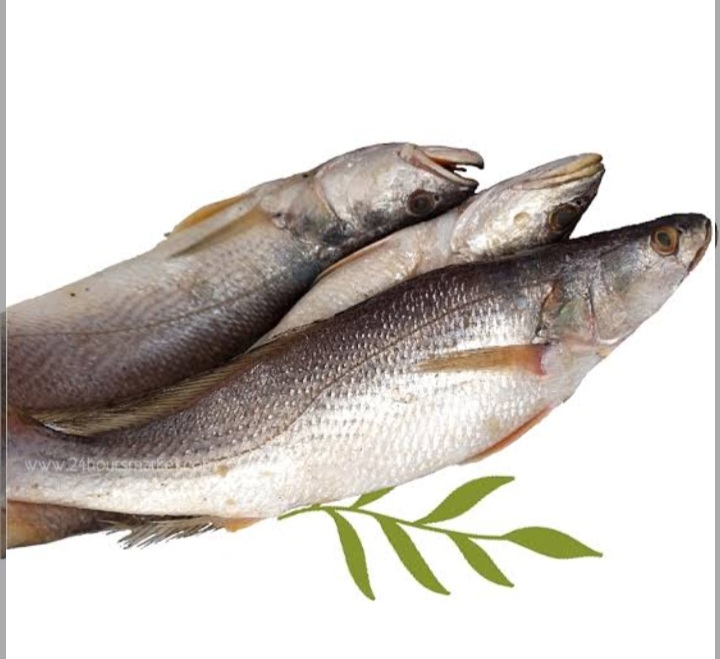Nature Life: Croaker And Nature

By Obiabin Onukwugha
The Croaker fish is a species of marine ray-finned fish belonging to the family Sciaenidae. Croaker is native to coastal waters in the western Atlantic Ocean. It is usually found in bays and estuaries over sandy or muddy bottoms where it feeds on polychaete worms, crustaceans and small fish. It is also found in both salt and fresh water, depending on the specie.
Atlantic croaker has some territorial names such as brocading, hardhead, spot balance, ruler Billie and malcontents. Croaker got its name from the ability to make low croaking clamor by getting muscles around its air bladder. But scientists say it is unclear whether the croaking is a form of communication within school of fish or a means of depth sounding or mating expression but they however consider that it maked sound often during breeding season.
Croakers reach sexual maturity about one year old along Gulf Coast. Spawning season is in fall with a peak between August and October. In the spawning season, females releases between 1 million and 2 million eggs, each about 0.35 mm in diameter. The larvae drift towards land after hatching on soft bottoms such as mud.
Croaker could live up to eight years but to predation, more than 95% of the population of croaker dies every year.
Popularly called “Broke Marriage” in local parlance and “Doro” by the Niger Deltans, Croaker is a delight to many dishes. Croaker is popular for barbeques in bars. It is also a delight for Okro soup and can be used to prepare the popular fisher man soup of the Rivers people.
Croaker is beneficial to the health as it contains high levels of omega-3 fatty acids. Omega-3 fatty acids help lower the risk of coronary heart disease and stroke and are important for the foetal growth
Traditional beliefs about Croaker fish
Croaker fish has many spiritual meanings for Native Americans, who believe it can help them connect with the spirit world. In addition, croakers are said to have healing powers and can be used to cure various illnesses.
The Croaker is also a symbol of strength and endurance, as it can weather the harshest conditions. For many Native Americans, the Croaker is an important part of their cultural heritage and a powerful symbol of their connection to the natural world.
In many cultures, the croaker is also seen as a symbol of good luck. In China, for example, fish is often given as a gift to newlyweds or babies. In addition, the Chinese believe that the croaker’s unique ability to make a “croaking” sound will help to ward off evil spirits.
In Japan, the croaker is also seen as a lucky fish and is often used in traditional folk medicine.
In Korea, the fish is often eaten on New Year’s Day to ensure a prosperous year ahead.
In many parts of Africa, the croaker is considered a powerful symbol. The croaker is thought to bring good luck and fortune in ceremonies and rituals. In some cultures, the croaker is also seen as a protector, warding off evil spirits and keeping the harm at bay.
So no matter what culture you come from, there’s no denying that the croaker has a long history of being associated with good fortune.
